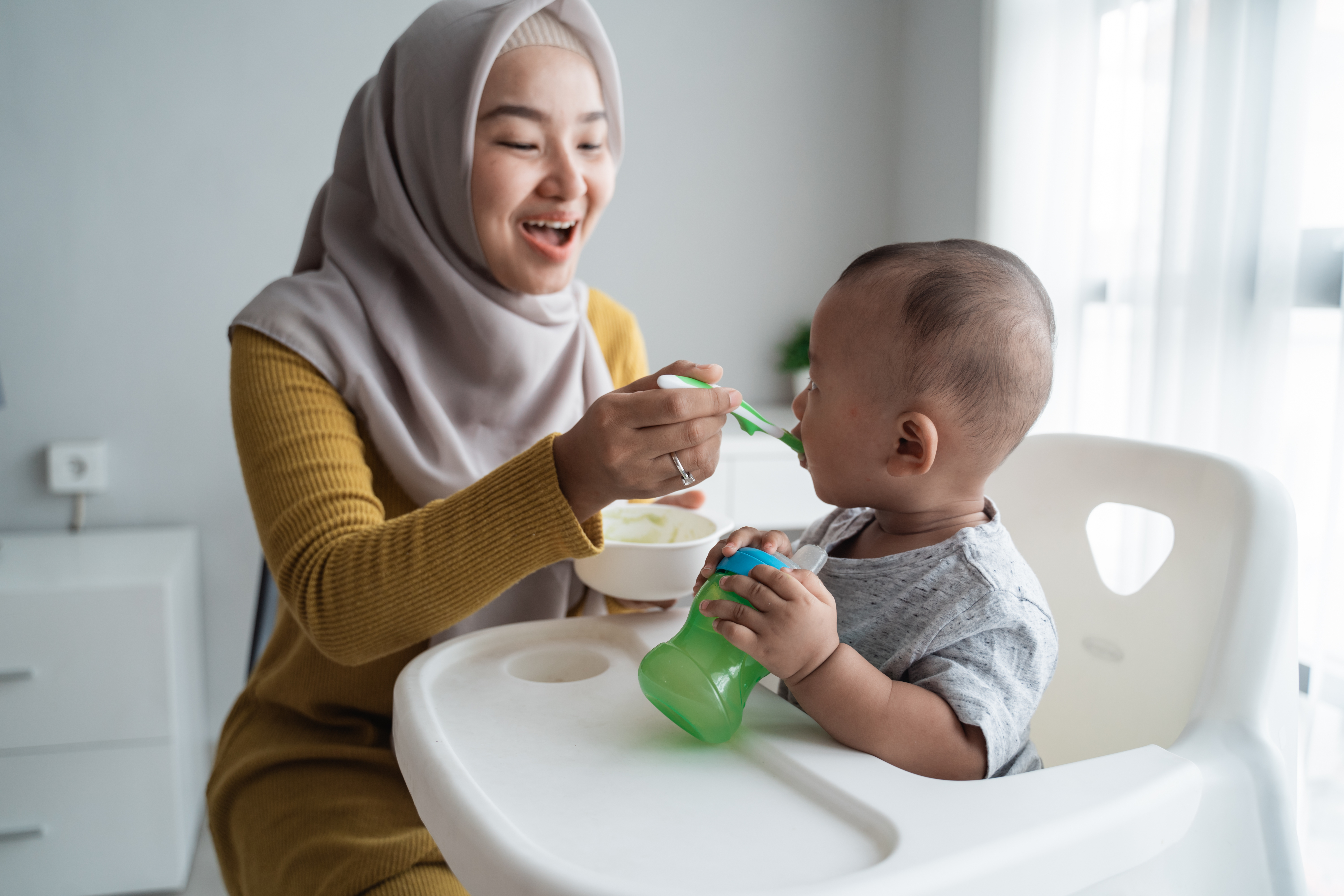Food allergy advice for you and your baby
Food allergy advice for you and your baby
If you have a food allergy or food intolerance, or you want to know if there is anything you can do to reduce the risk of your baby developing allergies, we have some information for you in this section.
Food allergy and food intolerance
If you have a medically diagnosed food allergy, or are excluding foods due to a food intolerance, you should ensure that you are getting the required nutrients you need while you are pregnant.
It’s important to note that food intolerances, and particularly food allergies in adults, are much less common than people think. People may self–report that they have a food allergy or intolerance, but figures for people with allergy or intolerance using scientifically recognised diagnostic tests are much lower than self-reported figures. The National Institute for Health and Care Excellence (NICE) guidelines recommend against the use of 'alternative' test kits, available online and in some shops. NICE says there is little evidence that these work and can lead to unnecessarily restrictive diets. So, you should speak to your health professional if you think you may have a food allergy or intolerance, before changing your diet.
What are the most common food allergies?
Common foods causing food allergies include milk, egg, peanuts, sesame seeds, fish, shellfish, tree nuts, wheat and soya. All these foods must be labelled if they are present or added to foods.

How likely is it that my baby will develop a food allergy?
Food allergy is relatively rare, affecting an estimated 1-2% of adults in the UK. Food allergy appears to be slightly more common in young children, with an estimated 6–8% of children under 3 years old having a proven food allergy. Many children outgrow their allergies to milk or eggs, but a peanut allergy is often life-long.
If I have a food allergy, is my child more likely to develop one?
Babies are more likely to develop an allergy if a parent or sibling has a medically diagnosed allergy (such as eczema, asthma, hayfever or food allergy). Your baby will also have a higher risk of developing a peanut allergy if they have another medically diagnosed allergy (such as eczema or another food allergy).
Breast milk provides the ideal nourishment for newborns. European, American and international academic and health groups strongly recommend exclusive breastfeeding for 6 months, with introduction of complementary foods no earlier than about 6 months, once your baby is developmentally ready for this. Peanut and hen's egg can be introduced from around 6 months of age. Evidence shows that delaying introducing peanut or hen's egg beyond 6 to 12 months of age may actually increase the risk of your child developing an allergy to these foods, and it is important that once introduced to these foods, they are still a normal part of your infant's diet. However, if you have a family history of early-onset eczema or suspected food allergy, then you should seek medical advice before introducing these foods.
If you're not breastfeeding, ask your doctor for advice on what kind of formula to give your baby.
Can I help reduce the risk of my baby developing an allergy in pregnancy?
The increase in the number of children with a food allergy in recent decades has led to the suggestion that a mother's diet during pregnancy may be a key factor in determining a child's risk of developing a food allergy. However, an expert review published in 2018 by COT (Committee on Toxicity of Chemicals in Food, Consumer Products and the Environment) concluded that there was no sign that avoiding allergenic foods (such as peanut, hen's egg) during pregnancy reduces the risk of your child developing an allergy. Therefore, it is not recommended that mothers avoid allergenic foods during pregnancy or while breastfeeding. There is also a lack of consistent evidence to suggest that other aspects of the diet, such as eating fruit and vegetables, fish, or particular fats or fatty acids, could reduce the risk of a child developing an allergy. So, it is important not to restrict your diet during pregnancy, as this may negatively affect your and/or your baby’s nutrition.
It has also been a suggested that consuming some supplements during pregnancy, such as probiotics, may reduce the risk of your child developing a food allergy. However, the evidence to support this is limited and guidelines make no specific recommendations about the use of probiotics or other supplements during pregnancy to reduce the chance of your baby developing an allergy.
I have heard some pregnant women avoid peanuts to prevent peanut allergies in their children. Is there any benefit or truth to this?
Current government advice does not recommend avoiding peanuts during pregnancy (unless you are allergic to peanuts yourself), as this has not been shown to reduce the chances of your baby developing a peanut allergy. The same is true for other allergenic foods, such as hen's egg and foods containing gluten, and you should not avoid eating any particular foods while pregnant, other than those that are recommended for reasons of food safety (such as soft blue cheeses). Find out more on our page on what not to eat when pregnant.
I have a food allergy. How can I make sure I’m getting the right nutrients for me and my baby?
If you are avoiding certain foods due to your own medically diagnosed food allergies and are concerned you may not be getting all the nutrients you need during pregnancy, then you should speak to your midwife or GP. Depending on your allergies, you may be referred to a dietitian to help support you in your choices of alternative foods, which will provide you with the nutrients you and your baby need.
Information reviewed June 2015
